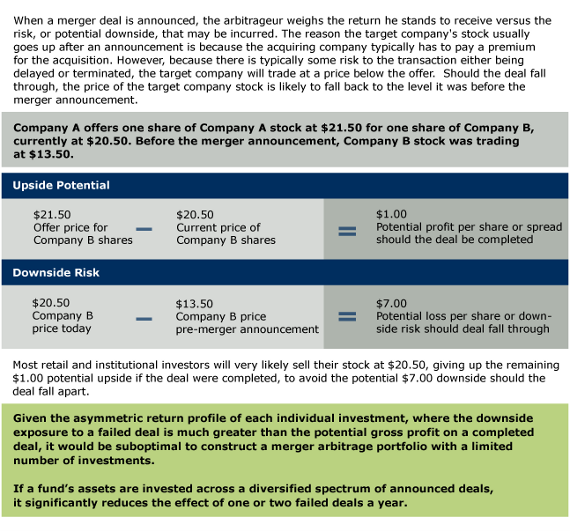Merger Arbitrage Merger Arbitrage Takeover Defenses
Post on: 16 Март, 2015 No Comment

Sunday, April 4, 2010
Merger Arbitrage: Takeover Defenses
Not all acquisitions are negotiated in a friendly manner. Companies often become targets when they are weak, be it a depressed share price, or a troubling business environment. Management is always reluctant to relinquish control during these times. We all want to leave while on top, right? When a company receives an unsolicited takeover offer, it has several possible defense mechanisms. Defensive by-law provisions are designed to create structural impediments for acquirers, thereby allowing the incumbents to maintain control. We will highlight various takeover defenses companies use to thwart interested parties.
If a hostile offer is rejected by a target companys board, the bidder will often seek to replace said board with its own nominees. To do this, the bidder will have to gain majority representation and vote to accept the proposal. To prevent this, the target can adopt a classified board, also called a staggered board. Assume a board is composed of nine directors, each serving three year terms. Further imagine that a takeover proposal is initially rejected in unanimous fashion (maybe the valuation is unacceptable, or perhaps the board is replete with friends of the CEO who dont want to see their buddy out of a job when the new sheriff arrives). In a standard board, the bidder can elect its nominees, and if the sufficient number of shareholder votes is secured, then board control is realized. In a staggered board, a nine-member board will likely have three directors up for election each year. So, to gain control, it will take a minimum of two shareholder votes (often annual meetings) to hold the required number of board votes. This can be a lengthy and expensive process. What can also happen is that the targets share price can drift to the offer price on a fundamental basis, which diminishes the bidders argument that it is offering a substantial premium.
Another tool commonly used is the shareholder rights plan, which is also called a poison pill. Recall that Carl Icahn is seeking legal proceedings to remove Lions Gates poison pill. The idea of a rights plan is that the board adopts a threshold above which the people who do not cross are allowed to purchase shares at a discount to dilute the triggering party. The longer-term trend shows that poison pills have been on the decline. In 2001, 60% of S&P 500 companies had pills in place, sharply higher than the 21% in 2009.
Lets look at an example of how a pill has a dilutive effect. A company with a $10 stable stock price has a shareholder rights plan with a 20% threshold and a $40 exercise price. An investor hits the 20% mark, thereby triggering the flip-in feature of the plan. Each shareholder, except the triggering party, has the right to buy eight shares for $5 each (the right is to buy, for the exercise price, the number of shares equal to the exercise price divided by 50% of the 30-day average price). Lets say there are 100 shares total, so the non-triggering parties own 80 shares, and have the right to buy 640 shares for $3,200. The triggering party would see his or her position go from 20% of a $1,000 company, a $200 interest, to owning 2.7% of a company worth $4,200, a $113 interest. The math goes from 20/100 to 20/740. This is assuming maximum dilution, and that each non-triggering shareholder exercises all the available rights.
The vast majority of companies are incorporated in Delaware. Since a board of directors must approve a merger, Delaware has the just say no defense, meaning that the board can reject an offer indefinitely. The remedy to this is to replace the board, and the aforementioned staggered board can prolong this process. Of course, if a compelling enough offer is continually ignored, then the directors will ensure their own ouster.
These are strategies that merger arbitrage investors keep in mind in unfriendly transactions. They will undoubtedly come up in future situations we will analyze














